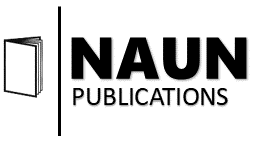Zinc Depletion Inhibits the Synthesis and Secretion of Thyroglobulin by Inducing Endoplasmic Reticulum Stress in PCCL3 Thyroid Cells
Authors: Kisang Kwon, Eun-Ryeong Lee, Kyung-Hee Kang, Tae-Sik Hwang, Seung-Whan Kim, Hyewon Park, O-Yu Kwon
Abstract: Thyroglobulin (Tg) is essential for thyroid hormone synthesis and thyroid function. Its levels are regulated by external environmental changes. Zinc is widely involved in cellular processes as a cofactor of enzymes and participates in metabolic processes. Here we investigated whether zinc depletion affected Tg production and secretion through the endoplasmic reticulum (ER) in the PCCL3 thyroid cell line exposed to the zinc chelator N,N,N′,N′-tetrakis(2-pyridylmethyl)ethylenediamine (Tpen). Although zinc depletion did not affect the gene expression of ER chaperones (BiP and PDI), it increased the expression of ER transmembrane signaling proteins (PKR-like ER kinase, inositol requiring enzyme 1, and activating transcription factor 6 (ATF6)). This resulted in the activation of downstream factors as shown by the increase of eIF2-α phosphorylation, X-box binding protein 1 mRNA splicing, and ATF6 fragmentation. Zinc depletion induced an inhibition of Tg expression and secretion and activated apoptosis in PCCL3 cells. Moreover, a reduction of secreted T4 levels and histologically abnormal thyroid follicle structures were found after zinc depletion. Therefore, zinc depletion likely inhibited the biosynthesis and extracellular secretion of Tg through ER stress signaling. These findings provide valuable insight into zinc potential as a treatment of hyperthyroidism.
Pages: 290-297
DOI: 10.46300/91011.2022.16.36
International Journal of Biology and Biomedical Engineering, E-ISSN: 1998-4510, Volume 16, 2022, Art. #36
PDF DOI XML
Certification
